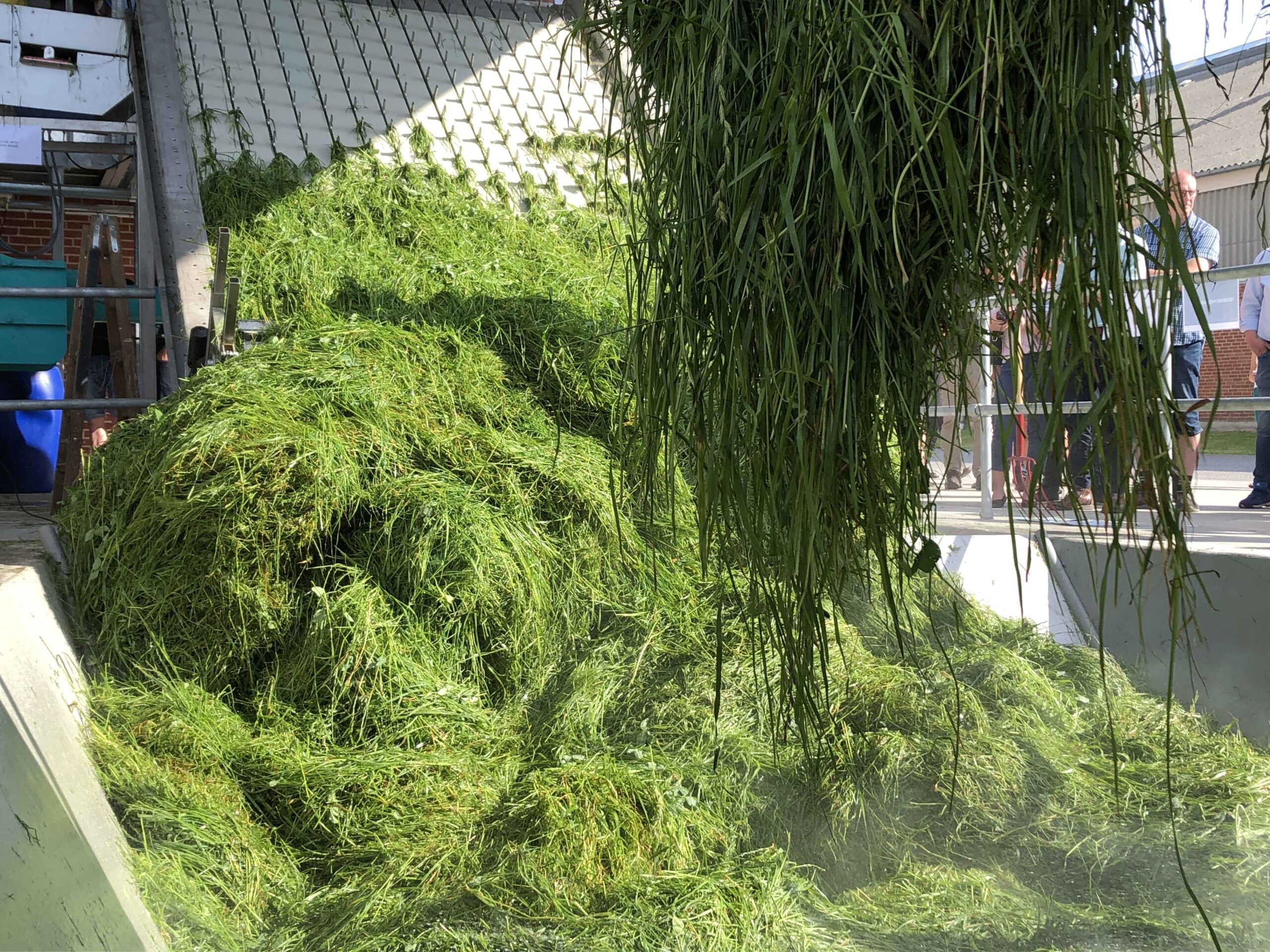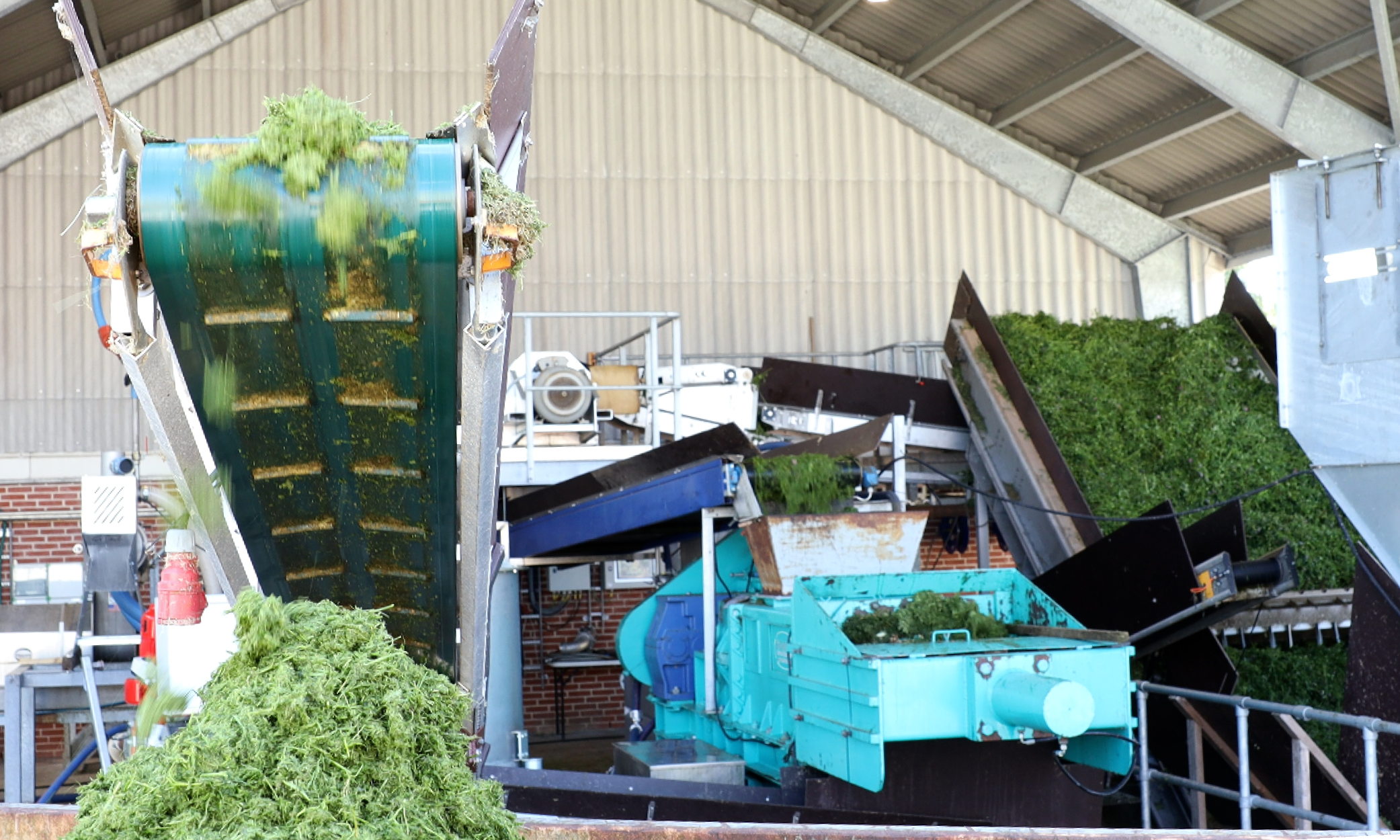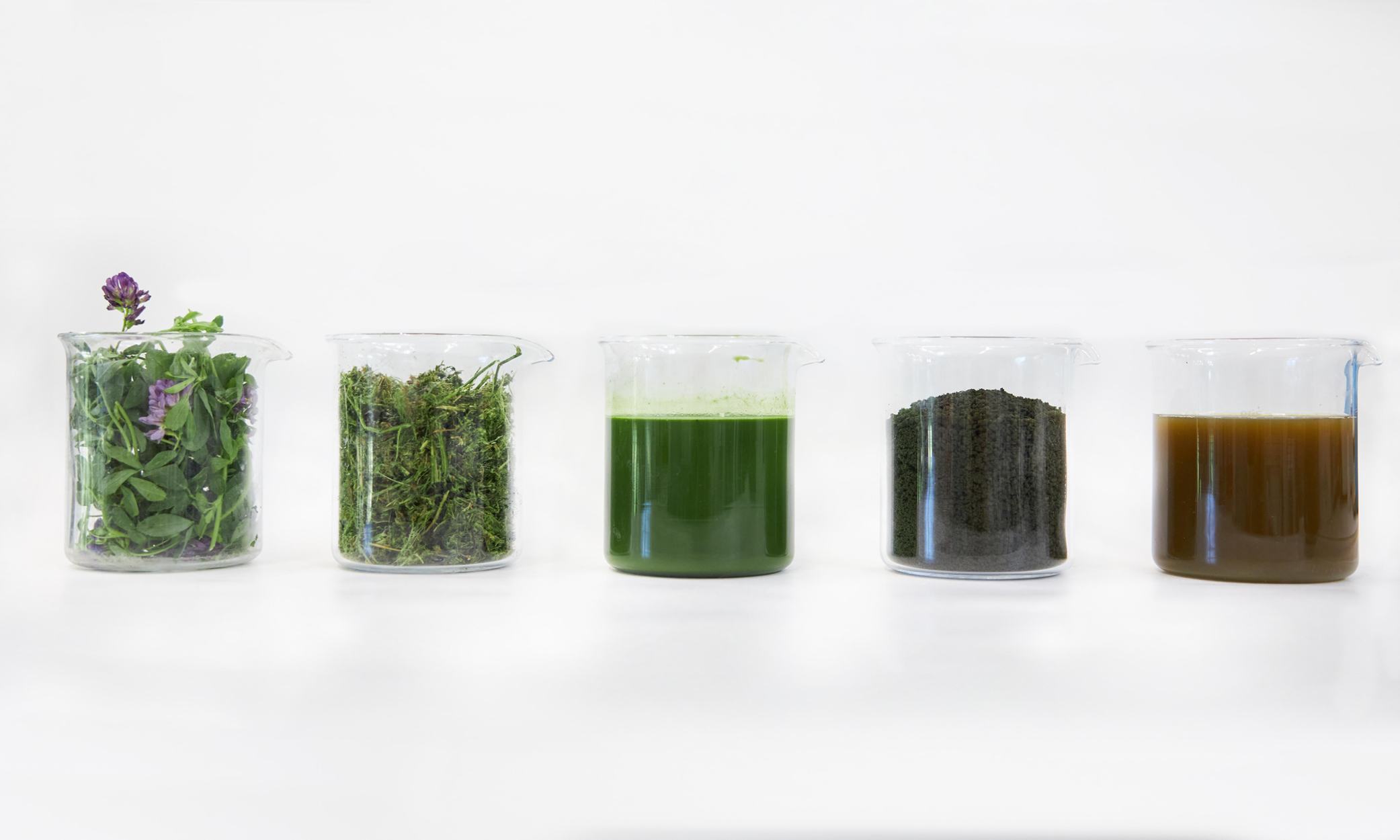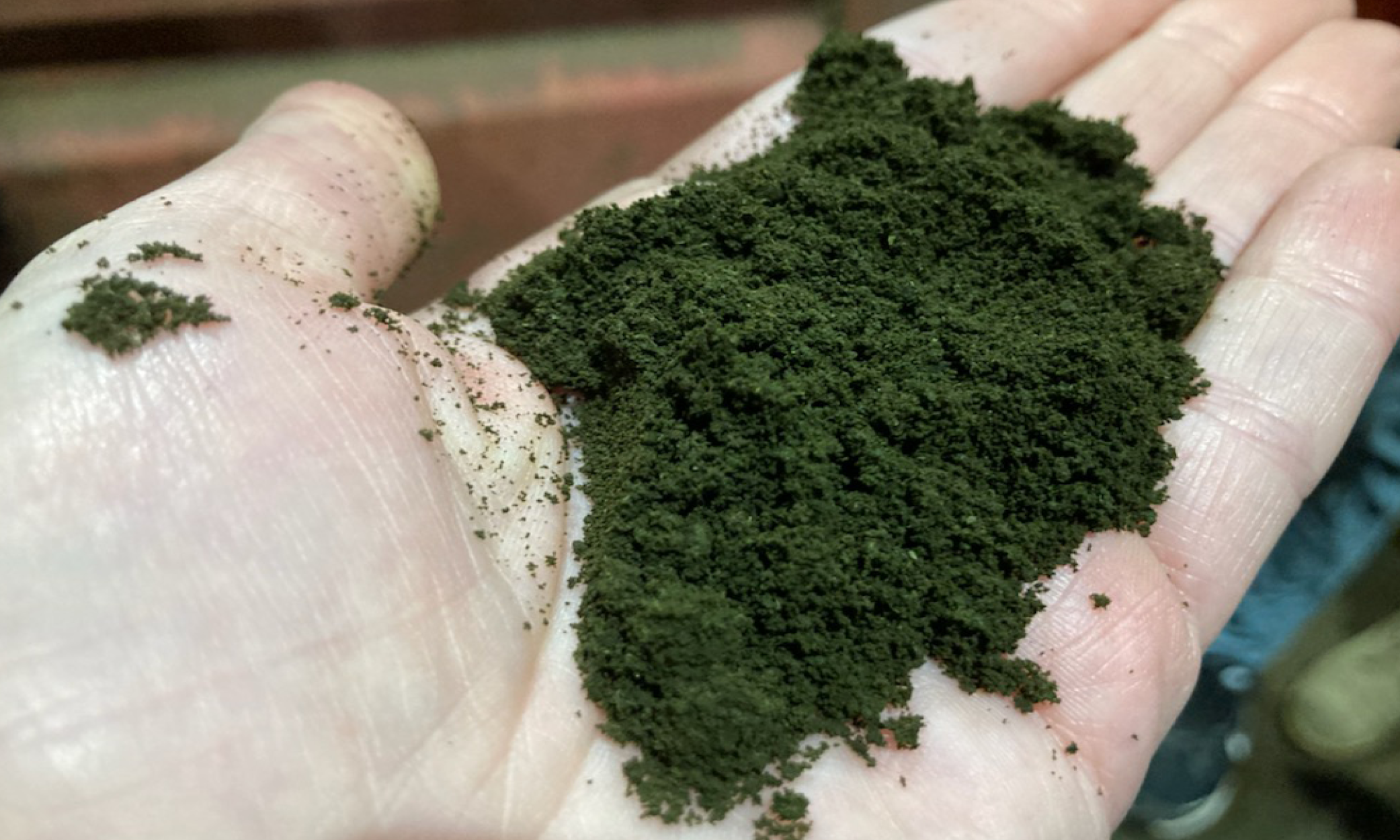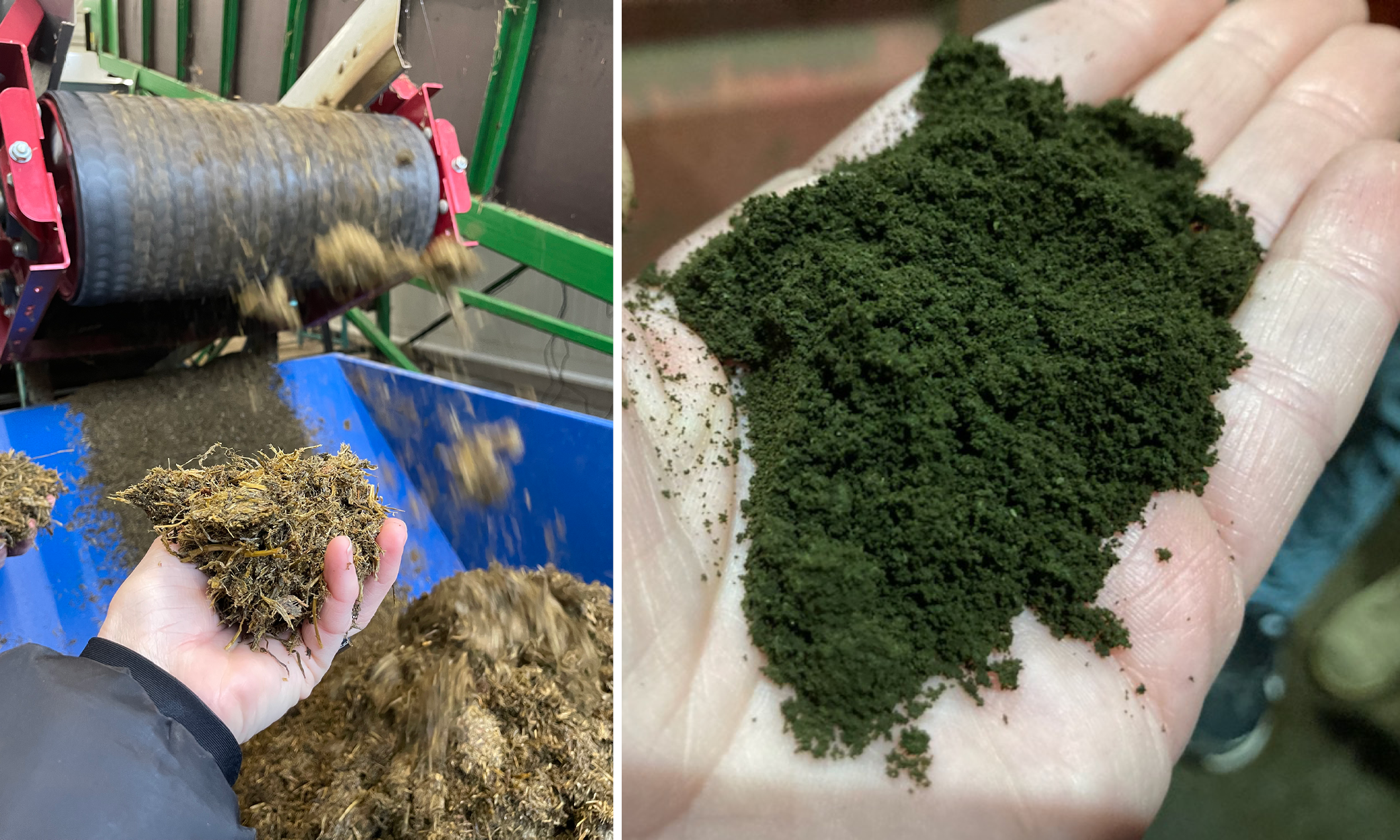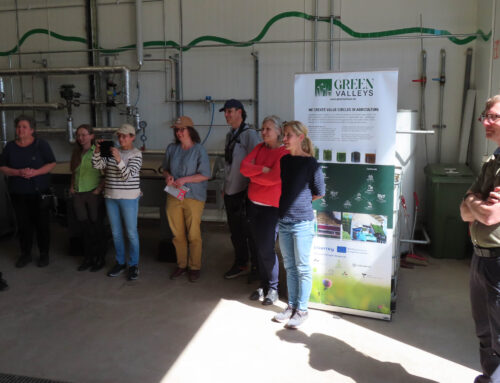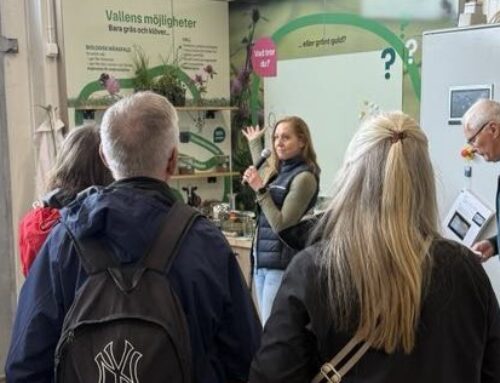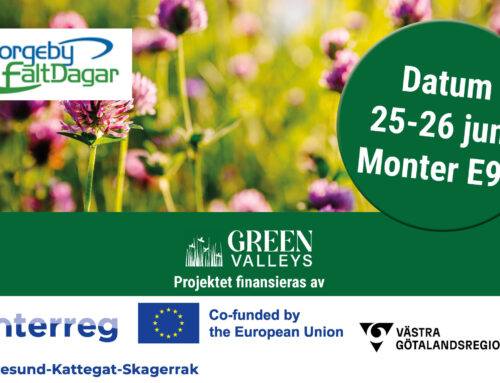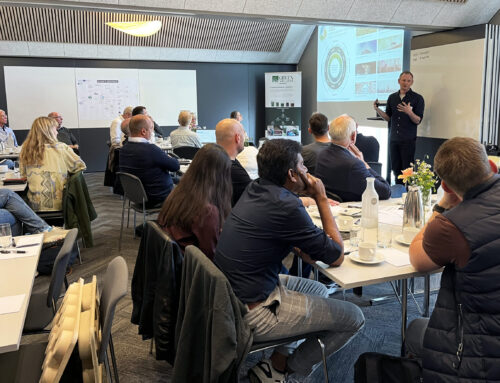In the INTERREG ÖKS project Green Valleys 2.0, between Sweden and Denmark, the focus is on high-quality green protein that is produced through green biorefining of clover and grass and that with ensiled grass the refinery can be kept running all year round to increase profitability. The project will investigate whether the green protein from refined grass can be used as fish feed and that the residual product “fiber pulp” from production can be used as biomaterials, biochar and silage feed for horses, sheep and cattle. The project will also focus on how grass best can reduce nutrient leaching and build-up soil carbon.
Cross-border cooperation creates a viable path to the green agriculture of the future.
The project builds on experiences from the Green Valleys project, which ran between 2018 and 2022, which is a research collaboration between Danish and Swedish partners. On the first of February 2023, the new project Green Valleys 2.0 started, which aims to further qualify the technology in both theory and practice. We are happy for the good cooperation to develop a green biorefining platform which is a circular and profitable system solution for the biorefining of grass and clover to produce green protein, which also uses the residual streams in a resource-efficient way.
– I’m looking forward to work in this project, as it is a very relevant and important research area. We need to reduce our dependence on imported protein feed and increase the degree of self-sufficiency. An increased proportion of grass and clover in the crop rotation also contributes to environmental and climate benefits because the need for fertilizers and pesticides is reduced at the same time as the root system of grass bound carbon into the soil and nutrient leakage into our waterways is reduced, says Agnes Falkenberg Brolin, Project Manager Green Valleys 2.0.
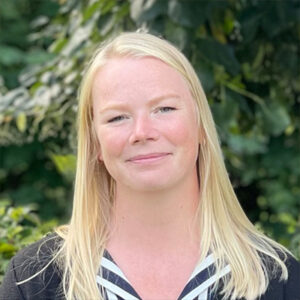
Agnes Falkenberg Brolin, Project Manager Valleys 2.0
Green biorefining is a form of production that can play a role in the green transition.
Demonstration platform at AU Viborg, research unit Foulum, is run by The Green Biorefining Technologies Group, which since 2019 has provided the latest research in green biorefining. The Green Biorefining Technologies Group is very interested in spreading the technology, including through project collaborations, so that green biorefining can become an established form of production in agriculture – not least in the Nordics.
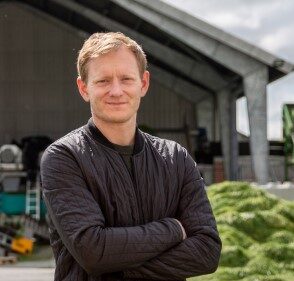
Morten Ambye-Jensen
“It makes a lot of sense to be part of a regional INTERREG collaboration like Green Valley’s, because through our exchange of experience we can make a significant contribution to the development of green biorefining in several places in the Nordics. That we continue for another project period testifies to the solid foundation that we have built and the perspectives that are in Green Valleys,” says Morten Ambye-Jensen, head of The Green Biorefining Technologies Group and the demonstration platform at Aarhus University.
In addition to an optimization of biorefining and side streams, seeds that, in addition to grass, also contain herbs, can be an opportunity to support the pollinating insects. In collaboration with the Swedish partners, Denmark is also looking at how compositions and staggered harvesting of the biomass can support as many pollinators as possible.
“By including several nectar- and pollen-producing flower species in the grass mixtures, we expect to be able to support a number of different insects,” says Claus Rasmussen, from the Department of Agroecology at Aarhus University.
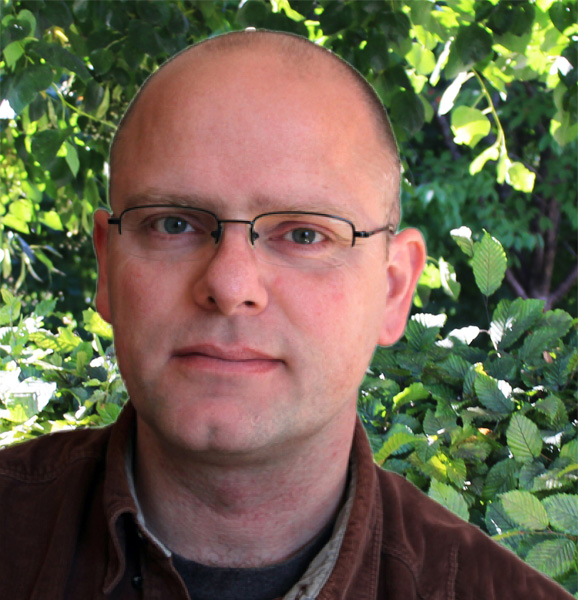
Claus Rasmussen
The project Green Valleys 2.0, has the overall goal of promoting cycle-based production of green protein
The EU regional fund program INTERREG-ÖKS has approved the application for the project Green Valleys 2.0 and awarded the project new support for another three years (2023-2026).
The main goal of the new project is that grass and clover should have a leading role in the transition to a more sustainable agriculture, but also that the project’s results should have direct effects on the farms. The biorefining process has been developed at the Danish pilot plant at AU Viborg, Research Centre Foulum, in Denmark and the biorefinery at Agricultural school at Sötåsen in Sweden. On these sites, green proteins will be extracted for animal feed and future high-value foods, while residual products from the process will deliver biomass to biogas plants, and biomaterials for packaging or in the textile industry.
The project will also contribute to better conditions for making investments in green biorefineries. This by involving interested farmers to give them advice and coaching before planning and investing in a biorefinery.
Partners in the project
Agroväst is the lead partner in the project with Skive Kommune as the Danish coordinator. A total of seven partners from Sweden and Denmark participate in the project.

Financed by:

Contact information:
Project leader Green Valleys project:
Agnes Falkenberg Brolin
Mobile number: +46 728 87 57 50
Mail: agnes.falkenberg@agrovast.se
Projekt coordinator, Skive Kommune:
Bente Møller Marcussen
Mobile: +45 20 85 68 30
Mail: bmma@skivekommune.dk

